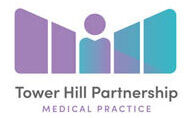How We Use Your Information
This notice explains:
- Why the practice collects information about you and how it is used
- Who we may share information with
- Your right to see your health records and how we keep your records confidential
Why We Collect Information About You
In the practice we aim to provide you with the highest quality of health care. To do this we must keep records about you, your health and the care we have provided or plan to provide to you.
These records may include:
- Basic details about you, such as address, date of birth, next of kin
- Contact we have had with you such as clinical visits
- Details and records about your treatment and care
- Results of x-rays, laboratory test etc
- Relevant information from people who care for you and know you well, such as health professionals and relatives
It is good practice for people in the NHS who provide care to:
- Discuss and agree with you what they are going to record about you
- Give you a copy of letters they are writing about you; and
- Show you what they have recorded about you, if you ask
We will only store your information in identifiable form for a long as in necessary in and in accordance with the NHS England’s Rules.
How Your Records Are Used
The people who care for you use your records to:
- Provide a good basis for all health decisions made by you and care professionals
- Allow you to work with those providing care
- Make sure your care is safe and effective, and
- Work effectively with others providing you with care
Others may also need to use records about you to:
- Check the quality of care (such as clinical audit)
- Protect the health of the public
- Keep track of NHS spending
- Manage the health service
- Help investigate any concerns or complaints you or your family have about your health care
- Teach health workers and
- Help with research
Some information will be held centrally to be used for statistical purposes. In these instances, we take strict measures to ensure that individual patients cannot be identified.
We use anonymous information, wherever possible, but on occasions we may use personally confidential information for essential NHS purposes such as research and auditing. However, this information will only be used with your consent, unless the law requires us to pass on the information.
How We Keep Your Records Confidential
Everyone working for the NHS has a legal duty to keep information about you confidential.
We have a duty to:
- Maintain full and accurate records of the care we provide to you
- Keep records about you confidential, secure and accurate
- Provide information in a format that is accessible to you (i.e., in large type if you are partially sighted)
We will not share information that identifies you for any reason, unless:
- You ask us to do so
- We ask, and you give us specific permission
- We must do this by law
- We have special permission for health or research purposes or
- We have special permission because the interests of the public are thought to be of greater importance than your confidentiality
Our guiding principle is that we are holding your records in strict confidence.
Who Are Our Partner Organisations?
We may share information with the following main partner organisations:
- NHS England
- Our Commissioners
- NHS Trusts / Organisation (Hospitals, CCG’s)
- Ambulance Service
- Social Services
We may also share your information, with your consent and subject to strict sharing protocols about how it will be used with:
- Education Services
- Local Authorities
- Voluntary Sector Providers
- Private Sector
Anyone who receives information from us also has a legal duty to keep it confidential.
If you believe the Trust has breached any of your Data Protection Rights
You have a right to complain to the UK supervisory Authority as below.
Information Commissioner:
Wycliffe house
Water Lane
Wilmslow
Cheshire
SK9 5AF
Telephone: 01625 545745
Website: www.ico.org.uk
The Legal Part
You have a right to privacy under the General Data Protection Regulation 2018 (GDPR) and the Data Protection Act. The practice needs your personal, sensitive and confidential data in order perform our statutory health duties, in the public interest or in the exercise of official authority vested in the controller in compliance with Article 6 (e) of the GDPR and for the purposes of preventive or occupational medicine, for the assessment of the working capacity of the employee, medical diagnosis, the provision of health or social care or treatment or the management of health or social care systems and services on the in compliance with Article 9, (h) of the GDPR.
You have the right to ask for a copy of all records about you.
- Your request should be made to the practice holding your information
- We are required to respond to you within one month
- You will need to give adequate information (for example full name, address, date of birth NHS number etc.)
To access your record, contact:
The Practice Data Protection Officer is:
Judith Jordan, Head of Integrated Governance
NHS Arden and Greater East Midlands
Westgate House
Market Street
Warwick
CV34 4DE
Tel: 0121 611 0730
Email: agem.dpo@nhs.net
If you think anything is inaccurate or incorrect, please inform the practice as soon as possible. For other rights about the use of your information pleases see our website.
